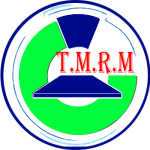Données Diverses
Questions
– 1. First TIA (in lifetime) ?
– 2. Past History of Carotid Stenosis ?
– 3. History of Gait Disturbance ?
– 4. Dysarthria or Aphasia (History or Examination) ?
– 5. History of Vertigo ?
– 6. Symptoms > 10 minutes ?
– 7. Already on Antiplatelet therapy ?
– 8. History of Unilateral Weakness ?
– 9. Initial Triage Diastolic Blood Pressure > 110 mmHg ?
– 10. Atrial Fibrillation on ECG (in the emergency department) ?
– 11. Platelet count > 400 x 109/ L (in the emergency department) ?
– 12. Infarction (New or Old) on CT (in the emergency department) ?
– 13. Glucose > 15 mmoL / L (in the emergency department) ?
The Canadian Transient Ischaemic Score is decision tool stratifies patients’ seven day risk for stroke, with or without carotid endarterectomy/carotid artery stenting, after presenting to the emergency department with a transient ischemic attack.
The score was found to be more accurate than the ABCD² and ABCD²I scores in determining risk for a stroke within 7 days of having a transient ischemic attack.
Scoring system & interpretation
– Scores of -3 to 3 = Low Risk (0.5 %)
– Scores of 4 to 8 = Intermediate Risk (2.3 %)
– Scores of >8 = High Risk (5.9 %)
References
Perry JJ, Sivilotti MLA, Émond M et al. Prospective validation of Canadian TIA Score and comparison with ABCD2 and ABCD2i for subsequent stroke risk after transient ischaemic attack : multicentre prospective cohort study.
BMJ : British Medical Journal 2021 February 4, 372 : n49



















